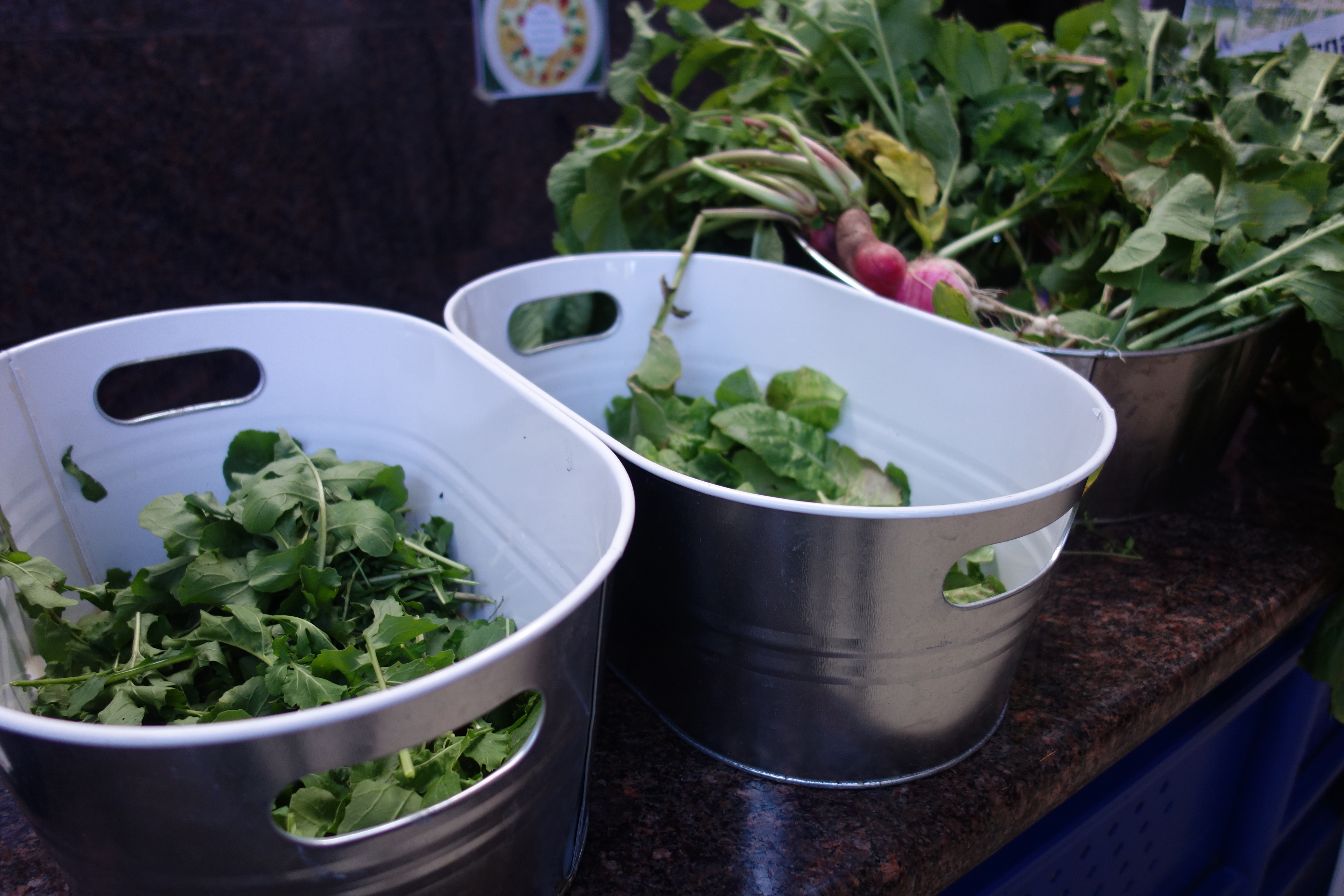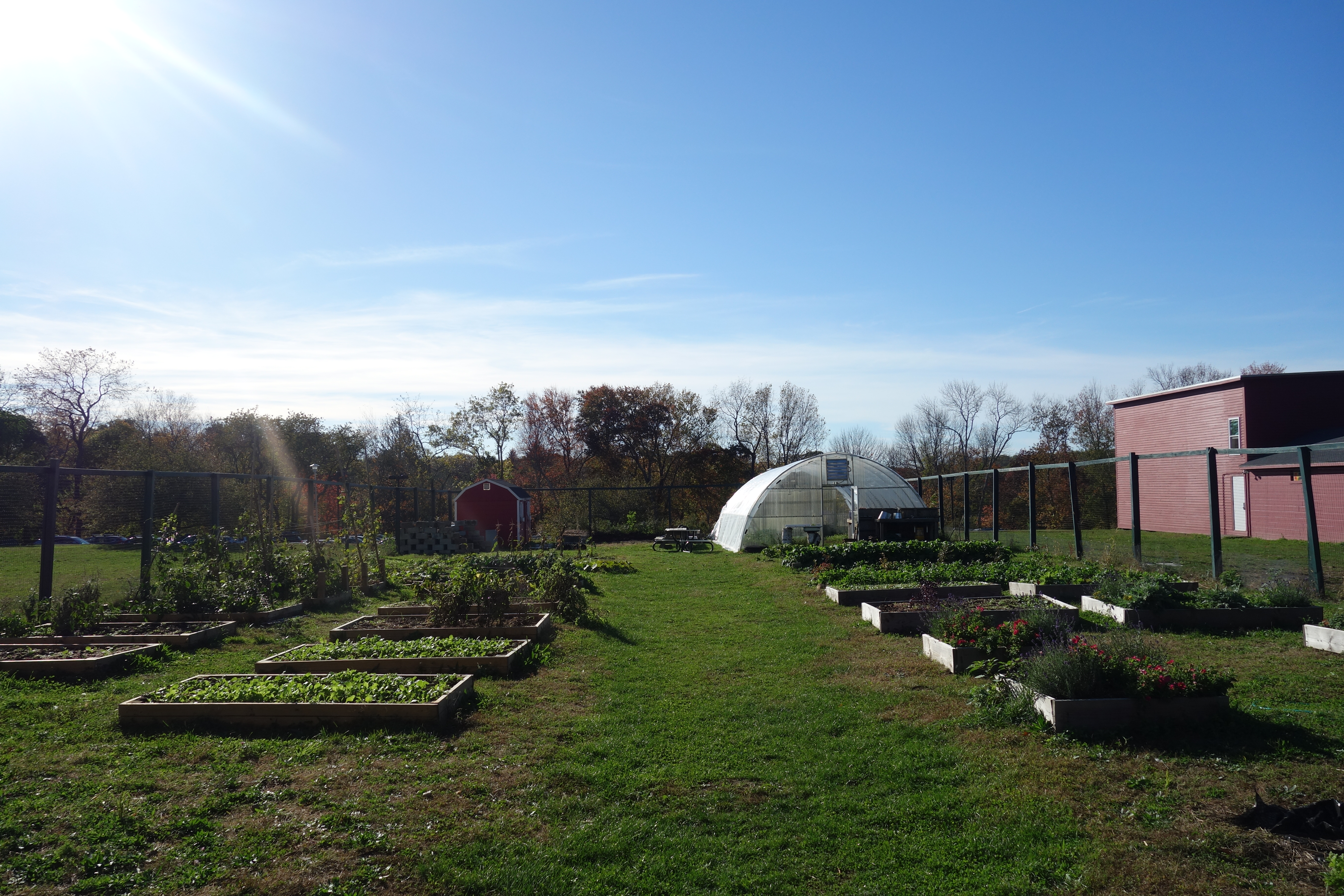Every Friday at Crozier-Williams, students can get free and fresh produce at the Sprout Garden Farmers’ Market. In passing, I have seen baskets filled with tomatoes and peppers, but this past Friday I stopped by to have a closer look at what the market was offering. On this particular day, students could buy a variety of herbs, arugula, and beets, all of which were grown on campus in the Sprout Garden behind Cro. As there is no other food market on campus for students who want fresh food, the Sprout Garden Farmers’ Market offers students access to produce.
This particular Farmers’ market has been operating since the spring of 2016, but since 2011, the garden has held summer markets, which tend to attract staff and faculty. The summer, spring, and fall markets are supervised by the Office of Sustainability here at Conn. The office helps “coordinate the space reservations and to manage the funds that are raised from the markets,” according to the Assistant Director of Sustainability, Margaret Bounds.
However, Bounds explained that “the Senior Fellow for [the Sprout Garden], Kira Kirk, and the Garden Managers do all the harvesting and run the tables [in Cro] themselves.” In previous years, Kirk stated that Sprout would give the produce from the garden to Harris, but the club discovered that these items would get lost in the immense amount of produce within the dining hall. Currently, the produce is sold only at the markets because this seems to be the most efficient way to deliver produce to the student body. This may sound counterintuitive, but Kirk explained that Sprout actually makes “more money with the markets by collecting donations rather than charging specific prices.” In fact, Sprout made $100 in just one market from donations.

Photo courtesy of Elizabeth Berry
The markets are not always successful. “We don’t have a steady clientele,” Kirk explained, adding that they “rarely have students” among the clientele. Kirk and other members of the Sprout Garden work hard to bring the produce to the community and make it accessible to students. Kirk wants students who live in independent housing to take advantage of these markets because “We [members of the Sprout Garden] have too much to eat and we want to give it out to the wider community.” One reason why there may be a lack of interest in the markets is because students do not know what to do with the produce. Even with foods that do not need to be cooked, such as lettuce, students “Do not have a space to prep the food and make [a] salad,” according to Kirk.
Thus, I think there would be even more attraction to these markets if not only students with apartments had access to kitchens. Bounds agrees and states that a kitchen gives you a platform to “experiment with how to cook different things and try out produce that may be new to you.” Not only is it important that upperclassmen with kitchens have access to produce on campus, especially if they cannot get it off campus, but it is also equally important to provide students with readily available resources to experiment with cooking. Kirk believes “there are little things that the college can do” and installing kitchens is something that would go a long way. While students should take more advantage of the resources they already have, such as the kitchens in Unity and Earth House, there could be improvements in culinary resources on campus. Kirk mentioned establishing cooking or baking nights in the coffee shops or revitalizing the abandoned industrial kitchen in Knowlton as two possible solutions to this problem.
Cooking is not just about nourishment, but also creates a sense of community between students. Bounds says that “cooking and eating together is… a great way to build relationships with people in your residence hall.” If students come to these farmers’ markets they will not only have access to healthy food grown on campus, but also the chance to meet other students, strike up conversations, and exchange tips and tricks about cooking on campus. However, improving the culinary resources on campus will only succeed through student pressure. Thus, for the sake of the Sprout Garden markets and having fresh food available on campus, as well as promoting healthier eating habits, I implore students to consider if they are content with our current food resources and begin to take advantage of what we have now, as well as discover and openly make suggestions on what could be improved.










